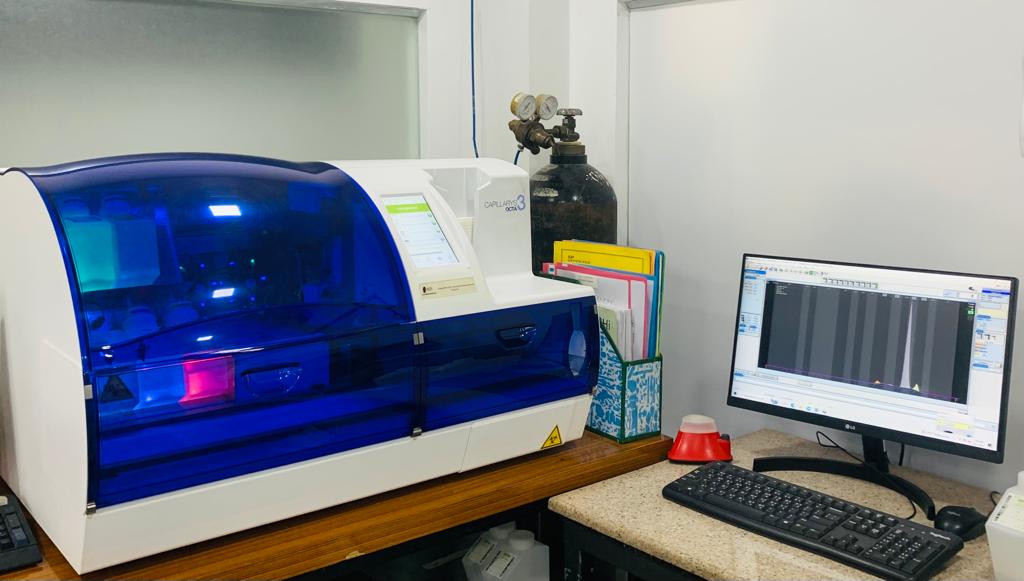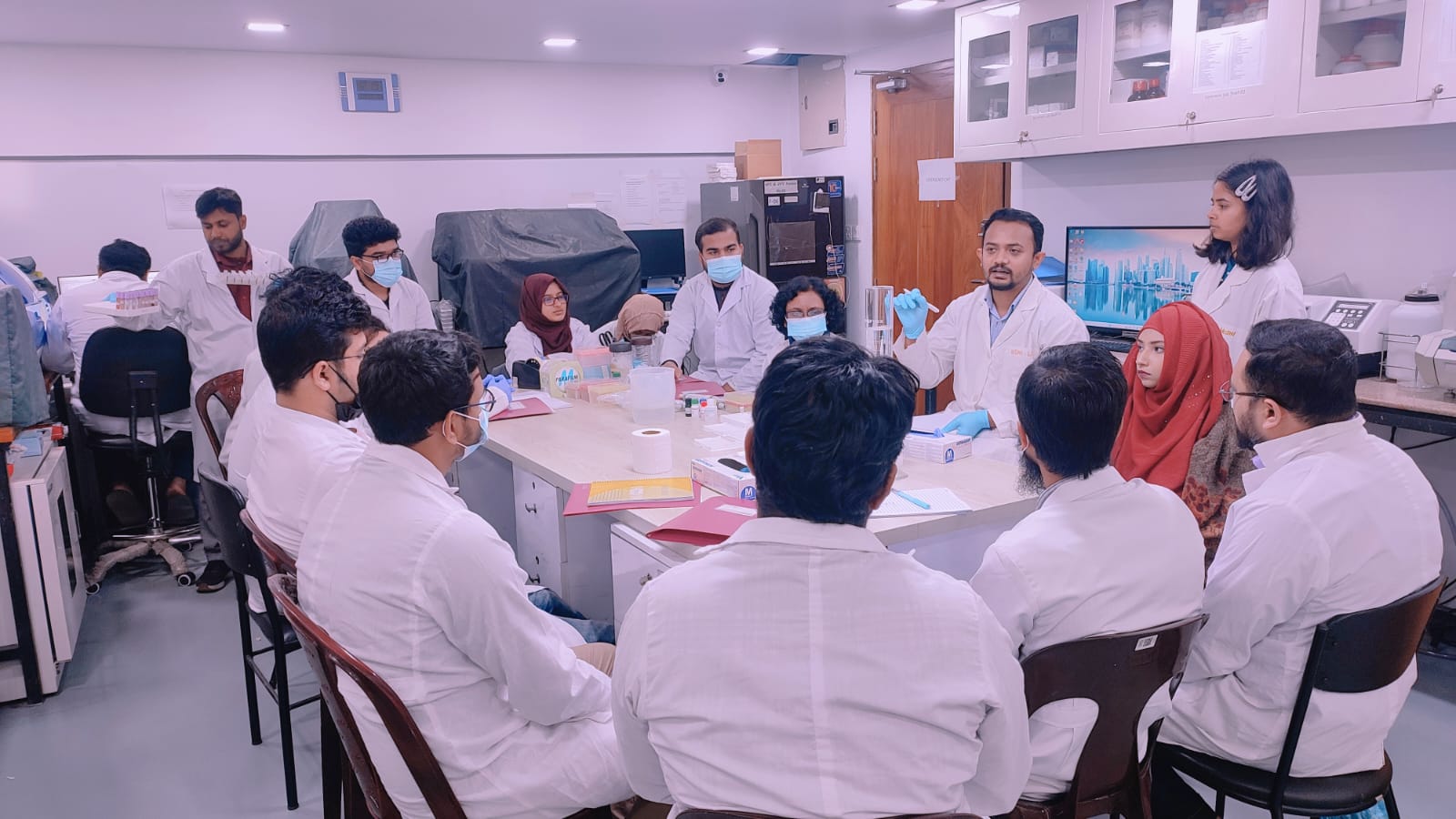Program Lead
Rumana Mahtarin
Our Approach
The research project is investigating the detrimental health effect of thalassemia by molecular analysis of β-globin and iron metabolizing regulatory genes in thalassemia carriers and HbE/β and β-thalassemia major patients in Bangladesh. Association of comorbidities and disruption of iron homeostasis have been explored to disseminate the research findings for proper disease prognosis.
Partners
- Department of Biochemistry and Molecular Biology, University of Dhaka
- Bangladesh Thalassemia Samity Hospital
Research Goals
The study objective is to determine the mutations in β-globin and iron metabolizing regulatory genes (HFE, HAMP, SLC40A1, HJV, and TFR2) of thalassemia carriers, HbE/β and β-thalassemia major patients which might be more helpful to understand the pathogenesis of thalassemia disease in Bangladesh.
Context
Thalassemia is an inherent hemolytic anemia which is characterized with different severity spectrum of clinical phenotypes. A fractional or complete absence in the synthesis of α-globin chains or β-globin chains due to genetic defects in the α-globin gene cluster on chromosome 16 or the β-globin gene cluster on chromosome 11 can lead to synthesis of defective hemoglobin. Worldwide >400 β-thalassemia alleles have now been described, among these more than 200 disease causing mutations have been identified for β-thalassemia. People with β-thalassemia major (β0/β0, β0/β+, and sometimes β+/β+) generally get medical attention within the first two years of life and necessitate regular RBC transfusions to survive. This transfusion can cause iron overload. Dysregulation of iron homeostasis promotes iron deposition in the organs, influences disease severity, which is the main cause of death in beta-thalassemia patients. This study might be more helpful to understand thalassemia disease etiology in Bangladesh.
Impacts
This research will facilitate investigation of the molecular analysis of β-globin and iron regulatory genes and also their role in thalassemia carriers and different disease spectrums of HbE/β and β-thalassemia major patients in Bangladesh. The characterization of the functionally relevant changes in the genes can provide a better molecular level understanding of the disease. Thus, the study will facilitate proteomics-based analysis, and investigations of structural and functional changes to improve drug efficacy. This investigation can be beneficial especially in young ages or prenatal stages, to take proper measures in advance and eventually improve the symptoms in the long run.






